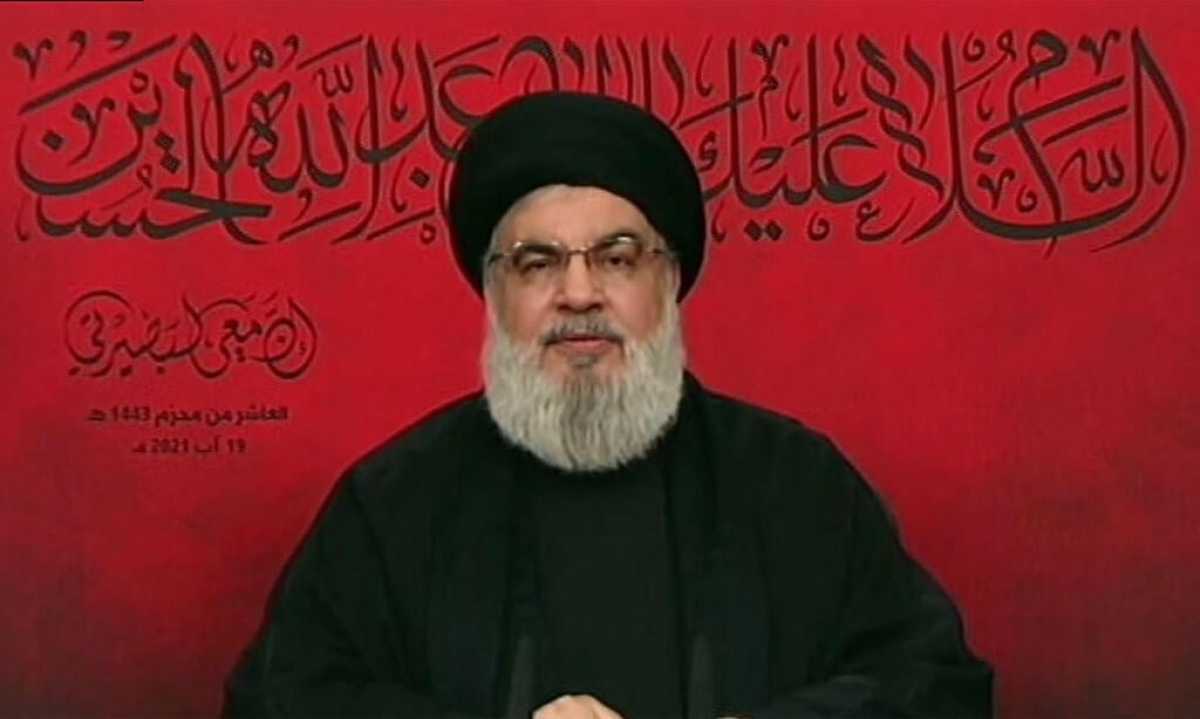World
Hezbollah Leader Hassan Nasrallah Set to Address Followers Amidst Lebanon-Israel Tensions

Hassan Nasrallah, the leader of the Lebanese Shia Islamist group Hezbollah, is expected to address his followers on Friday, his first public comments since the Israel–Hamas war broke out. This highly anticipated speech is likely to shed light on the group’s next moves, as its fighters and the Israeli army are engaged in intense attacks on the Lebanon-Israel border. With fears escalating that the area could become another front in the conflict, the outcome of Nasrallah’s address is crucial.
Since Hamas launched the deadly attacks on Israel on October 7th, killing over 1,400 people, Lebanon has remained on edge, closely watching Hezbollah. The group has intensified its attacks on Israel, prompting retaliatory strikes. However, thus far, both sides have taken measures to avoid a dangerous escalation, and most encounters have been confined to the border area. But the dynamics can change swiftly.
As Israel continues its ground invasion of Gaza with the goal of eliminating Hamas, the casualties in the Palestinian territory have surpassed 9,000, according to the Hamas-run health ministry. In response, Hamas has repeatedly called on its allies to join the fight, leaving many wondering if Hezbollah will answer these pleas for assistance.
Hezbollah, designated as a terrorist organization by the UK, the US, and others, holds significant political and military influence in Lebanon. Its decisions reverberate far beyond its support base, leaving people both within Lebanon and internationally anxious for Nasrallah’s upcoming speech. Intriguingly, the leader’s whereabouts remain unknown.
The broadcast of Nasrallah’s speech has been organized by Hezbollah, with public screenings across Lebanon, highlighting its significance. The group took the unusual step of announcing it five days in advance and released dramatic videos featuring Nasrallah earlier this week, fueling anticipation for a major announcement.
Memories of the devastating month-long war Hezbollah fought against Israel in 2006 still haunt many in Lebanon, fueling concerns that the group may plunge the country into another conflict. Hezbollah’s ultimate objective is the destruction of Israel, which views the organization as a more formidable adversary than Hamas. With their vast arsenal, including precision-guided missiles and a well-trained fighting force, Hezbollah has the capability to strike deep into Israeli territory.
Israel’s Prime Minister, Benjamin Netanyahu, has warned of an “unimaginable” response if Hezbollah opens a second front in the current conflict. To prevent further escalation, the US has dispatched two aircraft carriers to the eastern Mediterranean, while Israel reportedly received counsel against launching a large-scale attack on Hezbollah.
Given Lebanon’s economic crisis, political impasse, and the disastrous consequences that a full-scale war would bring, public support for such a conflict remains limited outside of Hezbollah’s followers. However, an alternative scenario suggests an increase in Hezbollah’s attacks, responding to Hamas’s calls while keeping the fighting localized to northern Israel.
The Biden administration, both publicly and through back-channels, is cautioning Iran against escalating the situation. Iran supports the so-called Axis of Resistance, an alliance including Hezbollah, as well as militias in Iraq, Syria‘s President Bashar al-Assad, the Houthis in Yemen, and Hamas. While the extent of Iran’s direct influence over these groups remains unclear, major decisions are unlikely to be made without Tehran’s blessing.
On Sunday, Iranian President Ebrahim Raisi stated that Israel’s “crimes had crossed the red lines, which may force everyone to take action.” He criticized the US for urging restraint while providing extensive support to Israel.
A source familiar with Hezbollah, requesting anonymity, revealed that Nasrallah has been closely monitoring the situation. Despite his public silence, the leader remains in constant contact with the group’s military leadership.
In this precarious regional climate, Nasrallah’s impending speech carries significant weight. The outcome could potentially shape the course of events in the already volatile situation between Israel, Hamas, and now Lebanon.












